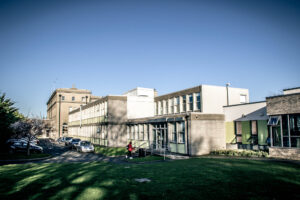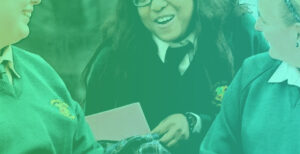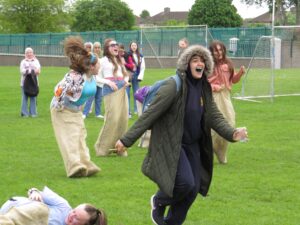The Risk Assessment below was carried out by the Board of Management of Loreto College Crumlin in order to establish if there are any practices or features of school activities that have the potential to place a student at risk. It was carried out in accordance with Túsla Guidelines and in adherence to the Children First National Guidance 2017. Throughout the Risk Assessment “harm” is defined as in Section 2 of the Children First Act, 2015,
- assault, ill-treatment or neglect of the child in a manner that seriously affects or is likely to affect the child’s health, development or welfare, or
- sexual abuse of the child.
In conjunction with this Risk Assessment, the school has made the Child Safeguarding Statement available to each member of staff (including all new staff). BOM members and staff are encouraged to avail of all relevant training and records are kept of this training.
General Daily Activities
- Early Arrival
- Late Arrival
- General Arrival
- Departure
- Mid-morning Break
- Lunchtime for students who
- remain on the premises
- Students leaving without permission
- Use of Toilet facilities
- School Transport
- Use of Technology in areas other than the classroom
- Congregation in locker areas
- Supervised after school study
- An ‘empty’ school at the beginning or end of the school day
- Visitors
- Hostile parents/guardians/visitors
- Shared campus. Service users of Loreto Centre and parents collecting children from primary schools on the grounds during school day.
Potential Risks Associated
- Risk of harm not being recognised by
school personnel - Risk of harm not being reported
properly and promptly by school
personnel - Risk of student being harmed by a
member of school personnel - Risk of student being harmed in the
school by another child - Risk of harm due to bullying of student
- Risk of harm due to inadequate supervision of student in school
- Risk of harm where student finds herself last/first in the school building
- Risk of student being unsupervised
- Risk of physical harm to students
- Members of the public (parents of children in the primary school and service users of Loreto Centre) are not vetted.
Mitigation of Risks
- The school has a corridor/grounds supervision protocol to ensure appropriate supervision of students during arrival, dismissal and break times and in respect of specific areas such as toilets, changing rooms etc.
- The school has a sign-in and stamp system for late arrivals
- The school has a sign-out with permission
system. - Attendance is registered twice per day by
Attendance Administrator and at each class
by teachers. Parents are sent a text if
students are absent. - The school has a Health and Safety policy
- The school has in place a Code of Behaviour
for students - All staff are Garda Vetted
- All staff have been provided with the Child
Safeguarding Statement and have had
appropriate training. - The school has an Anti-Bullying policy and
procedures in place, which have been
explained to the whole school community. - The school has a Code of Behaviour which
makes clear procedures for leaving school
grounds without permission and
consequences for doing same without
permission. - Exterior doors are locked to prevent access
from outside. An intercom system, lock
release and codes on front and back doors,
hatch at school office, secures the building
against unauthorized personnel who could
potentially harm students. - Visitors sign in. Identification tags are
issued. - Parents/guardians are encouraged to make
appointments - Teachers who stay late sign board in staff
room and sign out when leaving. - Break time supervision normally provided
on the grounds.
Teaching and Learning Activities
- Classroom interactions
- One-to-one teaching
- Guidance/counselling one-toone sessions
- Curricular Content and/or presentation in SPHE/RSE/Wellbeing
- Use of substitute teachers in the case of absenteeism
- Facilitation of all Faiths in Curricular RE
- Meetings with SLT on one-toone basis
- Use of Education Technology within the classroom
- Work Experience
- Students with Special Needs
- Misuse of equipment in school
- On line teaching and learning during unforeseen school closures.
Potential Risks Associated
- Risk of student being harmed in the
classroom by another student - Risk of harm due to inadequate
supervision of students in classroom - Risk of harm not being recognised by
school personnel - Risk of harm not being reported
properly and promptly by school
personnel - Risk of harm due to bullying of student
in classroom - Risk of student being harmed in the
classroom by teacher or substitute
teacher - Risk of harm in one-to-one teaching
- Risk of harm caused by member of
school personnel communicating with
pupils directly or indirectly in an
inappropriate manner via social media,
texting, digital device or other. - Accessing inappropriate sites or
offensive materials - Risk of harm while carrying out work
experience - Risk of harm caused by personnel not differentiating for the needs of students with Special Needs
- Risk of one student harming another student
Mitigation of Risks
- The school implements in full the SPHE
curriculum - The school implements in full the Wellbeing
Programme at Junior Cycle - All school personnel are provided with a copy
of the school’s Child Safeguarding Statement - The Child Protection Procedures for Primary
and Post-Primary Schools 2017 are made
available to all school personnel - School Personnel are required to adhere to the
Child Protection Procedures for Primary and
Post-Primary Schools 2017 and all registered
teaching staff are required to adhere to the
Children First Act 2015 - The school adheres to the requirements of the
Garda vetting legislation and relevant DES
circulars in relation to recruitment and Garda
vetting - The school has a codes of conduct for school
personnel (teaching and non-teaching staff) - The school complies with the agreed
disciplinary procedures for teaching staff - The school has in place a policy and
procedures for the use of external persons to
supplement delivery of the curriculum - The school has in place a code of behaviour for students
- The school has an RE policy to cater for the needs of all students
- The school has protocols in place in for work experience in an external organisation
- The school has in place a policy and procedures in respect of student teacher placements
- The school has in place a mobile phone policy in respect of usage of mobile phones by students
- The school has an Acceptable Internet Use Policy for staff
- The Professional Code of Conduct (Teaching Council) applies to staff
- The school has a Special Educational Needs policy
- Specialist rooms locked when not in use and equipment stored safely.
- Protocols for the on line teaching and learning during school closures agreed by the Board of Management and distributed to teachers, students and parents.
Pastoral Care
- One-to-one counselling
- School outings
- School trips involving overnight
stay - School trips involving foreign travel
- Care of students with special educational needs, including intimate care where needed,
- Management of challenging behaviour amongst students.
- Administration of Medicine
- Administration of First Aid
- Curricular provision in respect of SPHE, RSE, Stay Safe
- Prevention and dealing with bullying amongst students.
- Training of school personnel in child protection matters
- Care of students with specific vulnerabilities/ needs such as:
– Students from ethnic minorities/migrants
– Members of the Traveller community
– Lesbian, gay, bisexual or transgender (LGBT) students
– Students perceived to be LGBT
– Students of minority religious faiths – Students in care
– Students on Child Protection Notification System (CPNS)
➢ Supporting students involved in misuse of Social Media
➢ Sanctioning students involved in misuse of Social Media
Potential Risks Associated
- Risk of harm not being reported properly and promptly by school personnel
- Risk of harm to students through bullying when away from home on school trips
- Risk of mishandling of students with challenging behaviour
- Risk of harm due to inadequate supervision of student
- Risk of harm to students through lack of understanding of specific needs, including sexual identity, religious and ethnic background
- Risk of harm to student
- Risk of harm caused by one student to another via inappropriate social media contact, texting, digital device or other
- Risk of harm to students by the use of inappropriate or over- harsh sanctions for bullying/misuse of social media
Mitigation of Risks
- All staff have been provided with the Child
Safeguarding Statement and have had
appropriate training. - The school has an Anti-bullying policy and
procedures in place which have been
explained to the whole school community. - School Personnel are required to adhere to the
Child Protection Procedures for Primary and
Post-Primary Schools 2017 and all registered
teaching staff are required to adhere to the
Children First Act 2015 - The school has in place a mobile phone policy
in respect of usage of mobile phones by
students - The school has in place an Acceptable Use
policy in respect of usage of all Computers,
Internet and Social Media - The school has a code of conduct for school
personnel (teaching and non-teaching staff) - The school has appointed qualified
Guidance teachers - The school has recruited teachers with
Special Education Needs training and
qualifications - The school appoints qualified SNA’s where
deemed necessary and funded by the DES - The school has a Tour policy which covers
protocols for overnight stays - The school has a Special Educational Needs
policy - The school has an active Pastoral Team with
particular understanding of the needs of the students in its care, including their background - The school has a set of procedures in relation to the administration of medicines
- Personal Pupil Plans (PPNs) are in place for students who have access to SNAs
- Student medical needs are made known to staff at the beginning of each school year and as they arise throughout the year
- Principal and Deputy Principal hold regular meetings with SNAs
Recruitment
- Principal
- Deputy Principal(s)
- Teachers
- SNA’s
- Administration staff
- Caretaking Staff
- Housekeeping Staff
- Cleaning Staff
- Short or longterm Contractors
Potential Risks Associated
- Risk of harm to students by personnel who are not qualified
- Risk of harm to students from personnel who have a history of unacceptable practices in previous employment
- Risk of harm to students from a member of personnel with a history of abuse
- Risk of harm to a student by a member of personnel unwilling to commit to the expected standards of the school
Mitigation of Risks
- The school adheres to the requirements of the Garda vetting legislation and relevant DES circulars in relation to recruitment and Garda vetting
- The school has an Employee Handbook and Induction programme for school personnel (teaching and non-teaching staff)
- When appointing, detailed references are sought
- The school has a rigorous interview process.
Sporting and after-school Activities and Trips
- Travelling to matches
- Changing in school’s changing room
- Changing in the changing rooms of other schools
- Annual Fun Day
- School trips involving overnight stay
- Administration of First Aid following a sports injury
- Use of external personnel to support sports and other extracurricular activities
- Sports coaches
- Volunteers/Parents in sports activities
- Student PE teachers
- Use of social media to record and comment on sporting events
- After school coaching sessions
- Use of facilities outside of school
Potential Risks Associated
- Risk of a student being harmed by a member of school personnel, a member of staff of another organisation or other person while participating in sporting activities
- Risk of harm to student while student is receiving First Aid treatment
- Risk of harm due to inadequate code of behaviour
- Risk of harm in one-to-one coaching situation
- Risk of harm to student due to lack of experience of Student PE teachers
- Risk of harm caused by member of school personnel communicating with pupils in appropriate manner via social media, texting, digital device or other manner
- Risk of harm caused by member of school personnel or a student circulating inappropriate material in relation to sporting activities via social media, texting, digital device or other manner
- Risk of harm to students by personnel in or on way to or from facilities outside school
Mitigation of Risks
- All staff and volunteers are Garda Vetted
- All staff have been provided with the Child
Safeguarding Statement and have had
appropriate training School sports personnel are required to adhere
to the Child Protection Procedures for
Primary and Post-Primary Schools 2017 and
also are required to adhere to the Children
First Act 2015 - The school implements in full the Wellbeing
Programme at Junior Cycle, incorporating PE - The school has an Acceptable Use Policy in
relation to the use of digital media - The School has a Code of Behaviour, drafted
in consultation with all stakeholders. - The School has a supervision protocol for all
major events. - The school has a supervision protocol for
transport to and from sporting activities - Coaching Staff are trained in First Aid
- The school has a Tour policy which covers
protocols for overnight stays - The school has in place a policy and
procedures in respect of student teacher
placements - The school has in place a mobile phone policy
in respect of usage of mobile phones by pupils - The school has in place a Code of Behaviour
for students - Students travelling to outside facilities are
adequately supervised by school staff - Students staying overnight on trips are adequately and appropriately supervised by school staff










